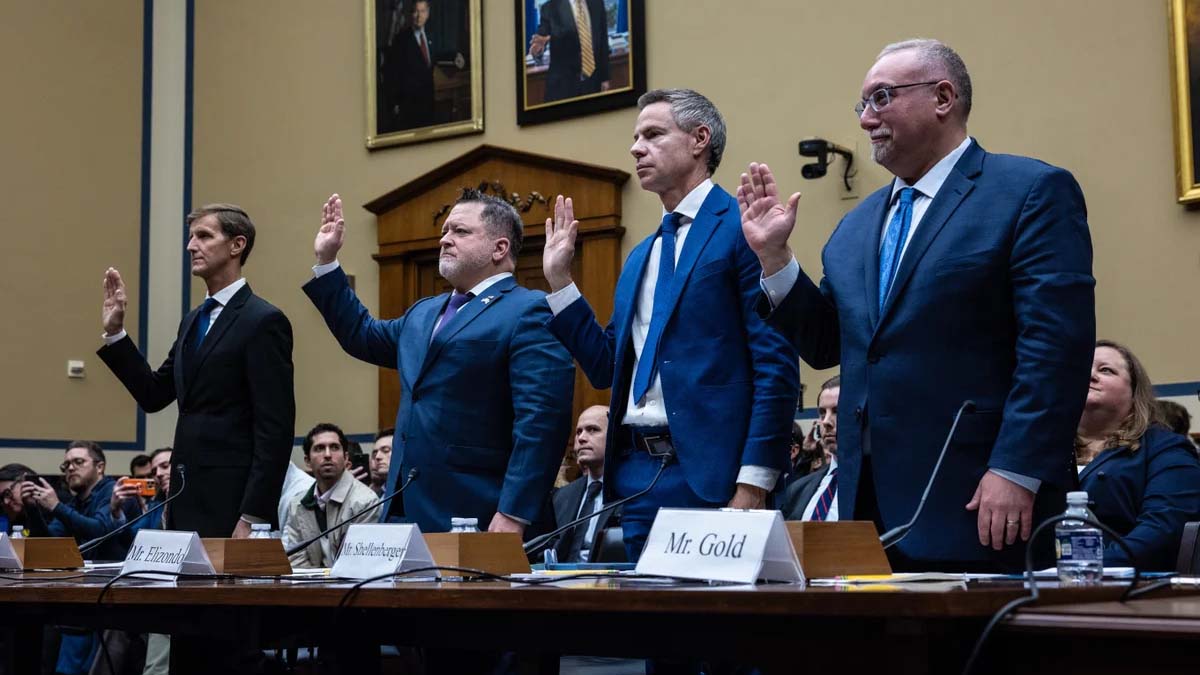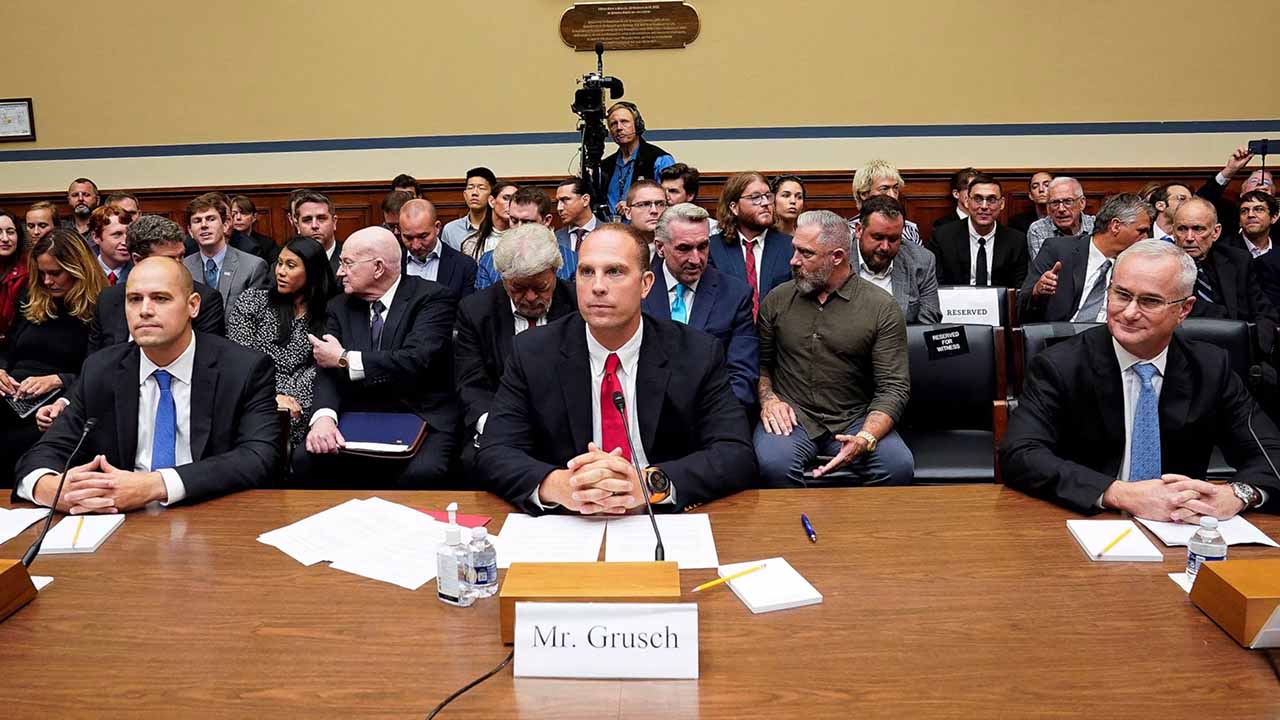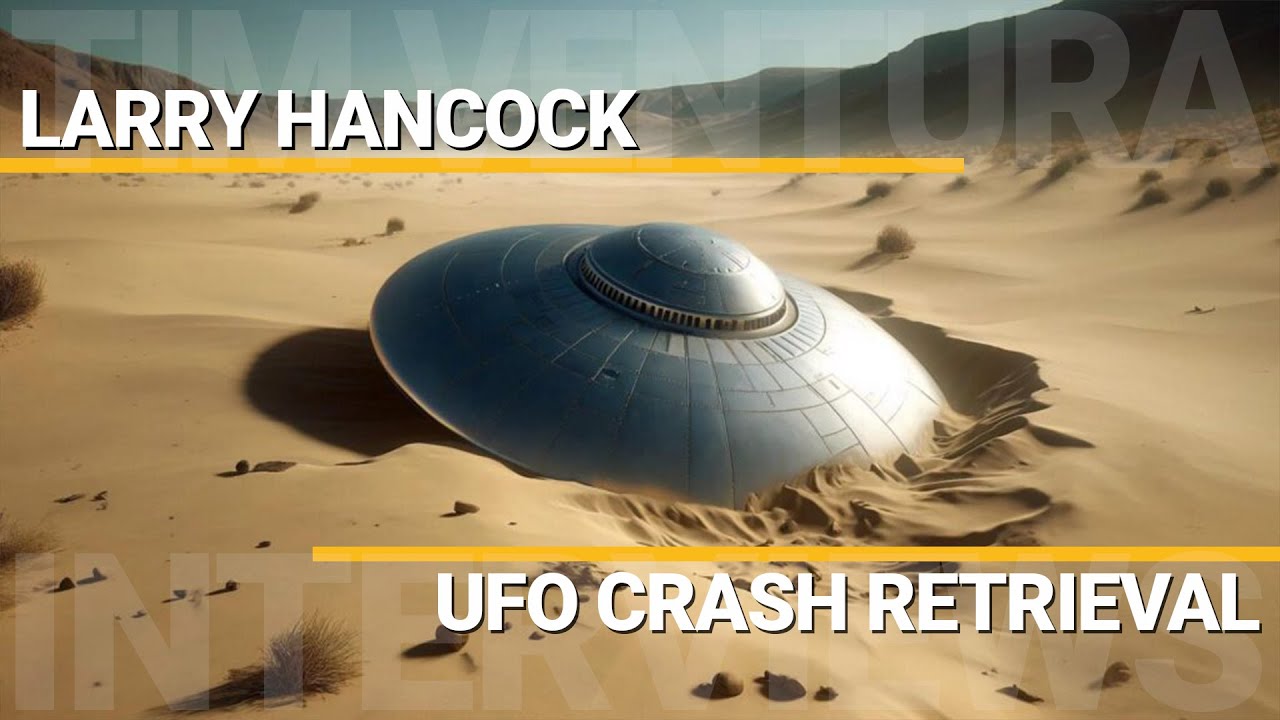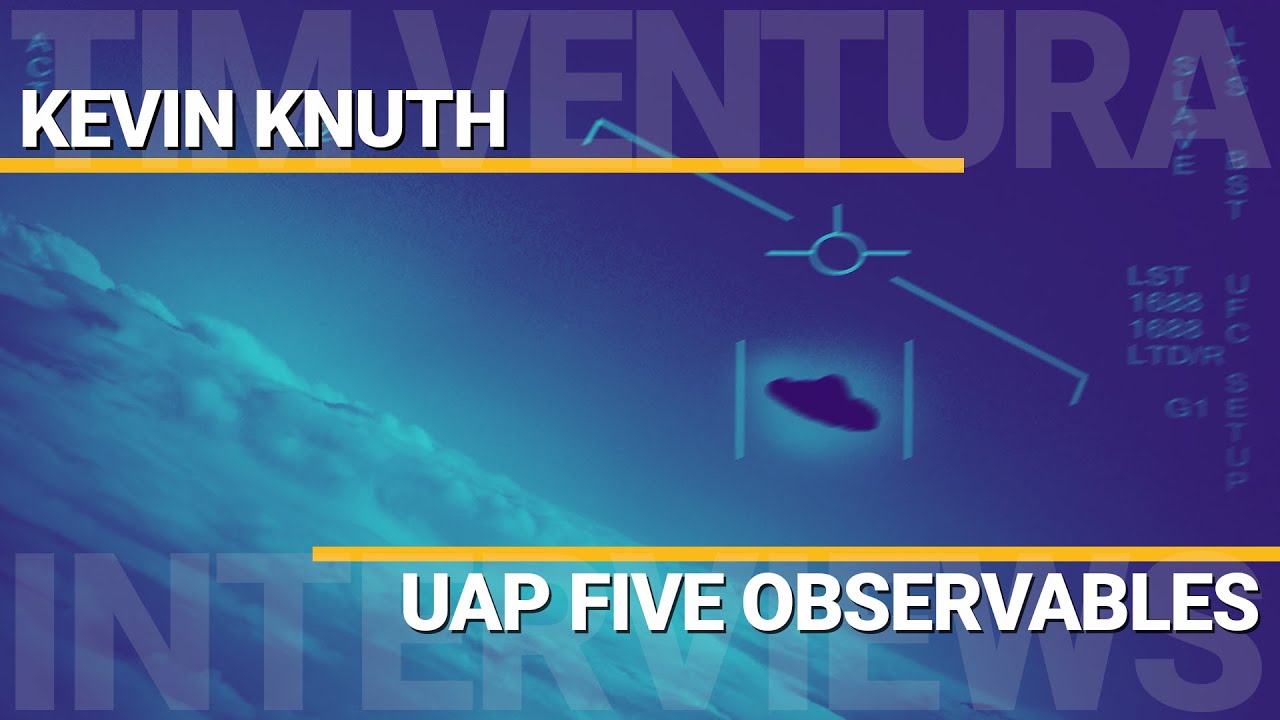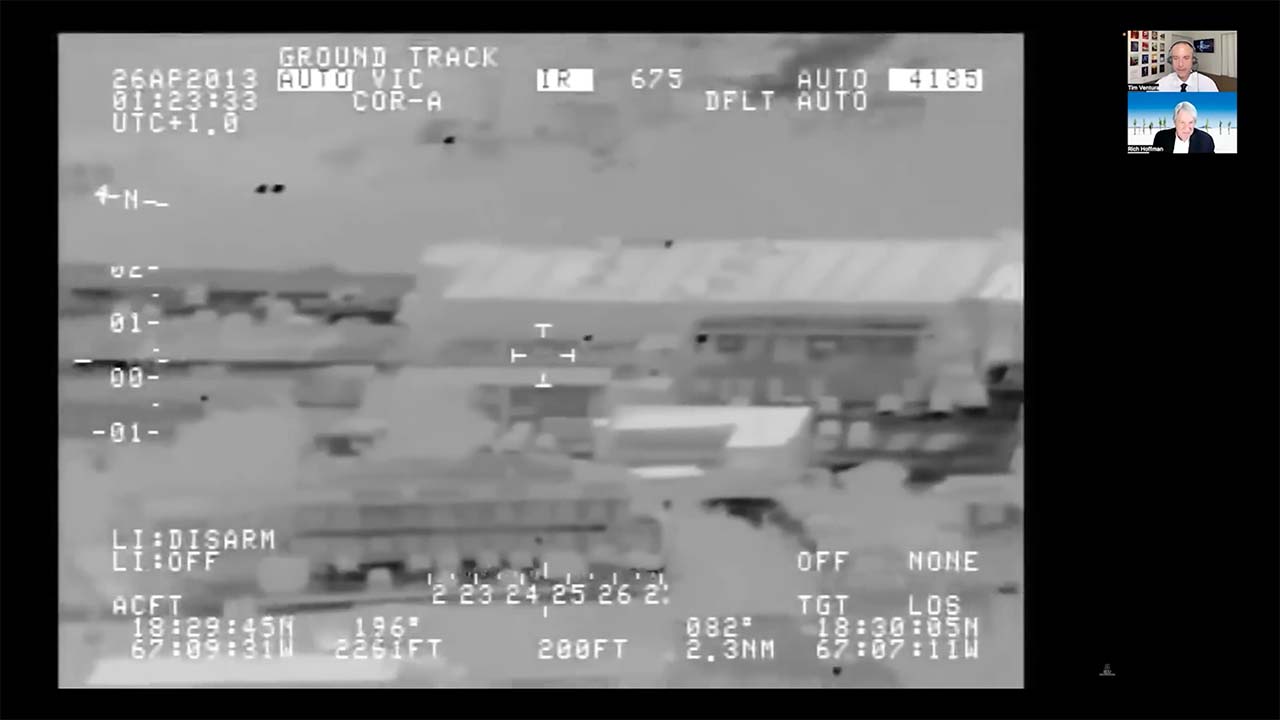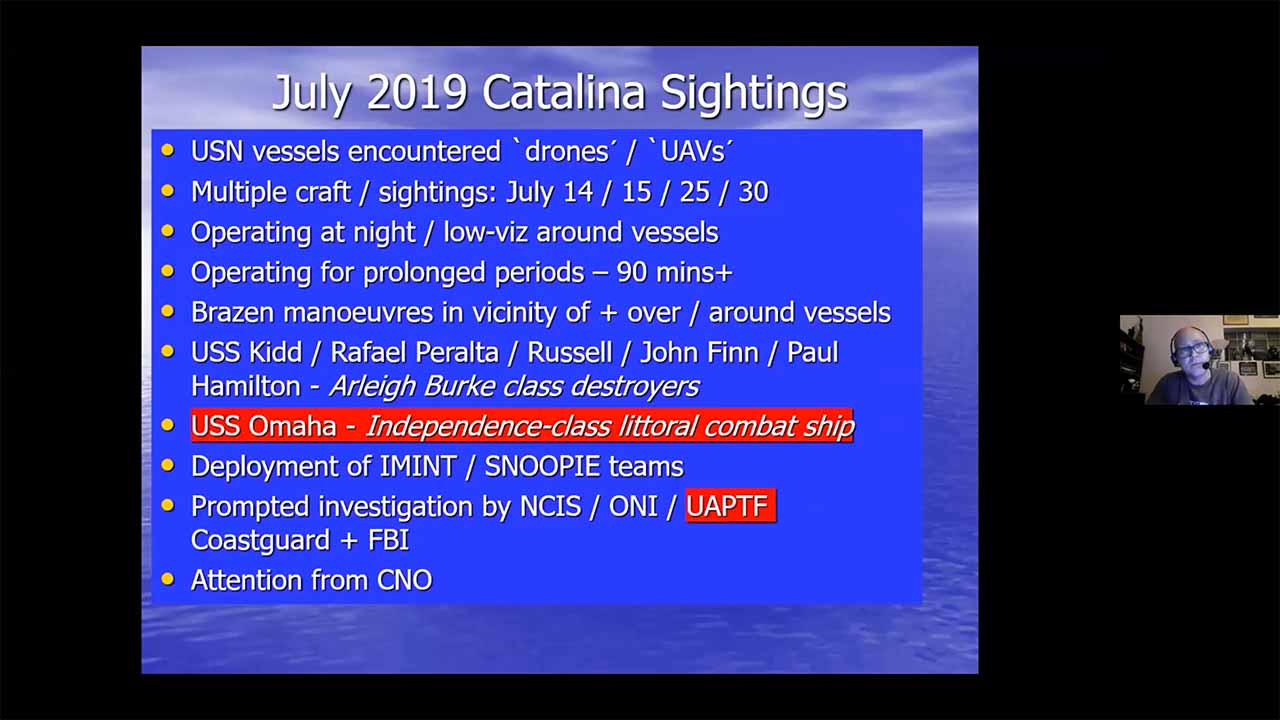The Axioms Of First Contact With Extraterrestrials
Ph.D. candidate Steven Firth discusses extraterrestrial first contact, the cultural & psychological differences that could lead to hostility, and provides key axioms to help avoid it. This presentation is based on his paper, “An Assay on Axioms of First Contact”. Firth describes distal (SETI) and proximal (UAP) scenarios for first contact, and how differences in distance, technological advancement, and other key factors could potentially affect situational outcomes. He also describes the potential for a “Hobbesian Trap”, and provides game-theory analysis on potential risks and benefits of a first strike by either side. In this presentation, a Hobbesian Trap can be compared to the US/USSR cold war in the 20th century, with the exception of different benefit/cost weightings in the game theory matrix describing first contact hostilities.
Steve Firth is a PhD candidate in Philosophy, whose research focuses on creating a framework for first contact with extraterrestrial intelligence (ETI). He argues that current approaches, heavily reliant on anthropocentric game theory and assumptions of hostile ETI, are inadequate. He proposes a set of axioms to establish a more robust and less conflict-prone foundation for interspecies interaction. The conversation highlights the limitations of game theory in predicting ETI behavior, particularly given the potential for vastly different technological advancements and the possibility of non-biological life forms.
Firth discusses the need for a proactive, globally coordinated approach to potential contact, emphasizing the importance of communication and cooperation over military responses. He also address the implications of recent UAP sightings and congressional testimony, suggesting a potential shift in governmental transparency regarding extraterrestrial phenomena. Finally, he advocates for increased funding for space exploration and SETI research, emphasizing the long-term survival of humanity and the potential benefits of encountering advanced civilizations.
The Urgent Need for a Proactive Framework
Current approaches to potential ETI contact are largely reactive, assuming contact is improbable, predictable, and insignificant. Firth challenges this assumption, arguing that there’s no logical reason to favor remote contact over a more immediate encounter within our solar system. He points to objects like ‘Oumuamua as potential examples of ETI probes, highlighting the urgent need for a cohesive, global strategy. The current fragmented approach, mirroring the chaotic response to the COVID-19 pandemic, is simply inadequate. The podcast underscores the lack of a unified, internationally agreed-upon protocol for communication, a critical flaw given the potential implications of first contact. Existing efforts, such as the Voyager probe’s plaque and various METI (Messaging to Extraterrestrial Intelligence) initiatives, lack the cohesive representation needed to speak for all of humanity.
Beyond the Hobbesian Trap: Rethinking Game Theory
A significant portion of the discussion revolves around the limitations of game theory in predicting ETI behavior. While acknowledging its power, Firth argues that its anthropocentric nature, particularly the assumption of equivalence between interacting parties, leads to the “Hobbesian trap” – a self-fulfilling prophecy of mutual escalation driven by fear, uncertainty, and doubt. The Cold War serves as a stark example of this trap. Firth contends that applying this model to ETI is fundamentally flawed, as the assumption of equivalence is unlikely to hold true. The vast technological and possibly even biological differences between us and ETI render game theory’s predictions unreliable. He proposes a set of axioms – fundamental, self-evident propositions – as a more robust foundation for approaching first contact.
Reimagining Extraterrestrial Life: Beyond Biology and Scarcity
The podcast challenges conventional assumptions about ETI. The discussion moves beyond the limitations of carbon-based, water-dependent life, exploring the possibilities of silicon-based life and post-biological intelligences. The rapid advancements in AI, exemplified by ChatGPT, further fuel this discussion, making the concept of sentient machines far more plausible. Firth and the host discuss the implications of long-lived, technologically advanced civilizations, potentially far exceeding humanity’s lifespan and technological capabilities. The Drake Equation, often used to estimate the probability of ETI, is revisited, highlighting its limitations in accounting for these possibilities. The concept of von Neumann probes – self-replicating machines capable of interstellar travel – is introduced, suggesting that ETI might already be present in our solar system, perhaps even near Alpha Centauri.
The Futility of a Military Response
The podcast strongly argues against a military response to ETI contact. The technological disparity is likely to be immense, rendering Earth’s weapons essentially useless. The discussion emphasizes the need for a diplomatic, communicative approach, highlighting the disastrous consequences of a first-strike scenario. The analogy of using a hammer for every problem is used to illustrate the inadequacy of a military-first approach. The podcast stresses the importance of respectful communication, even in the face of potential challenges, such as returning remains respectfully.
The Future of SETI and Humanity’s Place in the Cosmos
The podcast concludes with a call for a paradigm shift in our approach to SETI and UAP research. Firth advocates for increased funding for space exploration, emphasizing that space represents humanity’s only viable long-term future. He stresses the need for a more collaborative, globally coordinated effort, focusing on developing advanced communication tools and understanding non-humanoid communication methods. The podcast leaves the listener with a sense of urgency and the profound realization that first contact may be closer than we think, demanding a proactive and thoughtful response. The need for more researchers and thinkers in this field, rather than dismissal and skepticism, is highlighted, emphasizing the importance of sharing information with underfunded organizations advancing humanity’s understanding of the cosmos.
Register For UFORev
Want to see more great UFO Reverse Engineering stories? Sign up for our mailing list to get exclusive access to captivating presentations, engaging events, and more!
RECENT POSTS
Congressional UFO Hearing with Lue Elizondo
May 4, 2025
Congressional UFO Hearing with David Grusch
May 3, 2025
The Long History of UFO Crash Retrieval
May 2, 2025
Aguadilla UAP Sighting Analysis
May 2, 2025
The Catalina UAP Sightings
May 2, 2025
